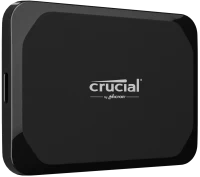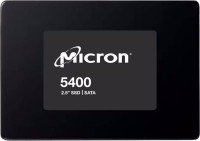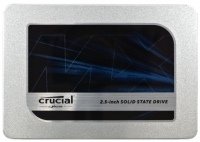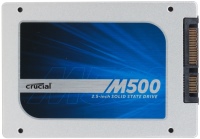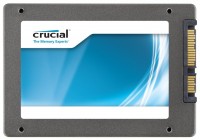SSD Crucial series P Series
prices on 3 modelsCrucial P Series
According to the manufacturer, Crucial P compact drives will be the best choice for those users who, for some reason, continue to use old clumsy hard drives. P-series drives provide a linear data exchange rate almost 6 times higher than an HDD with a SATA 3 connection, while the manufacturer did not try to save on matches, cutting everything in a row, so the conditional P1 and P3 models under load are not capricious as much as conventional M.2 entry-level SSD.
 |
Since this is an entry-level family, there is no DRAM buffer, low-cost Phison PS5021-E21T level solutions are usually used as controllers, and most P drives communicate via the PCI-E 3.0 bus. Despite this, many representatives of this series can boast of high linear speeds (up to 3500 MB / s) with solid IOPS and a decent resource of work to failure. And the use of memory of its own production (note: Crucail is a subsidiary of Micron) made it possible to achieve high reliability of the drives, which is confirmed by a 5-year warranty.
The model range of the series is replenished as follows: first, a conventional drive like Crucial P enters the market, immediately after it appears a slightly modified version with the Plus prefix. This is exactly what happened in 2022 when Crucial launched the P3 and P3 Plus models. Both are in the compact M.2 format, however, due to support for the fourth generation PCI-E bus, the P3 Plus model reads and writes data on average 25% faster. In most cases, the "P" series range includes drives with a capacity of 500 GB, 1 TB, 2 TB and 4 GB.


